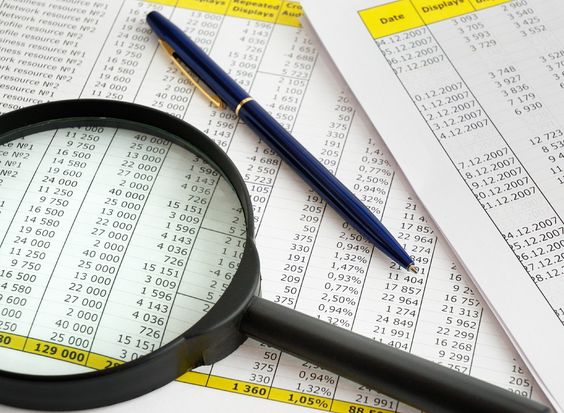News
View
- All posts
- 000港元資助
- 000的罰款
- 100萬港元的資助
- 100萬港元資助
- 100萬港幣
- 15億元港幣
- 1億元
- 1新幣
- 2024公眾假期
- 2024勞工假期
- 2024年創業指南
- 2024年政策更新
- 2024年施政報告
- 2024年美國總統選舉
- 2024年香港公眾假期
- 2024施政報告
- 2024施政報告懶人包
- 2025
- 2025中小企融資
- 2025公眾假期
- 2025創業
- 2025勞工假期
- 2025商標
- 2025報稅小貼士
- 2025年
- 2025年5月2日
- 2025年報稅新變化
- 2025年新商業智慧
- 2025年新報稅
- 2025年新挑戰
- 2025年新政策
- 2025年職場新思維
- 2025年香港公眾假期
- 2025會計趨勢
- 2025財政預算案
- 2025財政預算案懶人包
- 2025財政預算案直播
- 2025財政預算案重點
- 2025香港政府資助
- 2026公眾假期攻略
- 2026創業
- 24小時即時小額跨境匯款服務
- 37億港元
- 3800億元港幣
- 3900億元港幣
- 4 steps
- 4 Types Of Team Conflict
- 5萬資助
- 7000億港元
- 7000億港元的發債
- AA
- accountant for taxes
- Accounting Service
- Accounting Software
- Accounting Software For Business
- Achieve Goals
- Acknowledge Your New Role
- Additional Services
- administration of estates
- administrative services
- advantages of joint ventures in China
- affordable divorce lawyer Hong Kong
- Affordable travel insurance Hong Kong
- ai
- ai engineers
- ai jobs
- AI 生活
- AI信貸評級
- AI取代人類
- AI技術
- AI技術普及
- ai時代
- AI智能
- AI智能會計
- AI會計
- ai模型
- AI行業
- AI行業 改變
- AI貸款
- ai軟體
- aml
- annual leave calculation hk
- annual leave calculation hong kong
- annual leave hk
- annual leave hong kong
- annual leave in hong kong
- annual return
- Ant Perspective
- apply bno
- apply bno hk
- apply bno hong kong
- apply bno in hong kong
- apply bno visa
- apply for a tin number
- apply for business credit card
- Articles of Association
- artificial intelligence
- Assess financial situation
- Attract Potential Customers
- Attract Top Talents
- Auding
- audit
- audit hk
- Auditing
- audit會計
- Bad Debts
- balloon games
- balloon games for adults team building
- balloon games for employees
- balloon games for team building
- bank loans
- be a better leader
- best business credit cards
- best divorce lawyers in Hong Kong
- Best insurance plans Hong Kong
- best lending rate hsbc
- best place to have team building
- best places for team building
- best team building activities
- biggest family businesses
- bir56a
- BIR60
- bno visa application
- booking
- bookkeeping
- brand loyalty
- Brand Visibility
- british company
- BR續期
- BR罰款
- BR過期
- bud
- BUD Aplication
- bud application
- BUD Fund
- bud fund application guide
- bud fund hong kong
- bud funding
- bud hk
- bud hkpc
- bud hong kong
- bud 不可報銷
- bud 专项 基金
- bud 報銷
- bud 專項 基金
- bud 專項 基金 申請
- BUD 專項基金
- bud 申請
- bud 申請 資格
- bud 申請易
- bud 計劃
- bud 資助
- bud 開支
- bud 電 商 易
- bud 香港
- budfund
- BUD企業支援
- BUD加碼
- BUD加碼15億
- BUD基金
- BUD基金特點
- bud審批加速
- BUD審批手續簡化
- BUD專項基金
- BUD專項基金2023
- BUD專項基金懶人包
- BUD專項基金注資10億元
- BUD專項基金申請攻略
- BUD專項基金稅
- BUD專項基金資助上限
- bud專項資金2025
- BUD常見問題
- bud成功例子
- bud成功案例
- bud成功案例分享
- BUD投資策略
- BUD攻略
- BUD最高補助
- bud案例
- BUD注資15億元
- bud申請
- BUD申請指引
- BUD申請條件
- BUD申請流程
- BUD申請資格
- bud申請顧問
- bud資助
- BUD資助上限
- BUD資助方式
- BUD資助比例
- bud資助範圍
- BUD資助計劃
- bud電商易
- build strong presence
- business company registration number
- business credit card
- business development
- business expense record keeping
- business funding
- business growth
- business guide
- Business in China
- business interview questions and answers
- business invoice
- business loan
- Business loan calculator
- Business operation efficiency improvement strategy
- business plan
- business registration
- business registration certificate hong kong
- business registration hk
- business registration hong kong
- business registration office hong kong
- Business stamp Hong Kong
- business success
- business to the next level
- Business Visa
- bvi
- BVI Business Companies Act
- BVI公司開戶
- BVI公司開戶流程
- BVI離岸公司
- Career Opportunities
- case
- Cash Flow Management
- CBAM
- CEO
- Certified Copy
- Certified True Copies
- certified true copy
- certified true copy點做
- change of directors
- chatgpt
- chatgpt使用
- chatgpt咒語
- chatgpt懶人教學
- chatgpt懶人版
- China Company Registration
- china dividend withholding tax
- china green card
- china joint venture benefits
- China Visa
- china visa hong kong permanent resident
- China visa process in Hong Kong
- china withholding tax rate
- china work visa
- china work visa application
- china work visa processing time
- china work visa requirements
- china work visa types
- China's Cross-border E-commerce Fund In And Out Service
- chinese permanent residence
- CIT
- Cloud storage
- CLTV
- CLV
- Colleagues
- commercial lending
- commercial loan
- companies
- Company Expectations
- Company Formation in China
- company interview questions
- Company Registration
- Company Registration Address
- company registration hk
- company registration hong kong
- company registration number
- company registration number search
- Company registration process
- Company Secretary
- company secretary qualifications Hong Kong
- competitive market
- Conflict
- Conflict management
- Content Marketing
- Contract Flexibility
- Core Target Audience
- corporate income tax
- Corporate Income Tax in Singapore
- corporate tax
- corporate team building places
- Corporate Transparency
- Cost Comparison
- cost of making a will in hong kong
- Cost Reduction
- Create a budget
- Criticism
- Cross-Border Business
- CRS
- CR交表易
- cs
- cs外包
- CTC
- culture of recognition
- Customer Loyalty
- Customer Satisfaction
- Customer Service
- Customer Service Outsourcing
- customized gifts
- data scientists
- death intestate
- death probate
- deceased estate
- DeepSeek
- DeepSeek R1模型
- DeepSeek 影響
- DeepSeek的成功
- Demand Note for Individuals
- Development and Expansion Incentive
- die intestate
- Digital Marketing
- digital marketing strategy
- Direct Supervisors
- disadvantages of joint ventures in China
- divorce lawyer
- doing business china
- doing business in Hong Kong
- DPO
- dpo是什麼
- driving license
- dta
- DTSPP
- DTSPP審批成功
- DTSPP審批流程
- DTSPP申請
- DTSPP申請流程
- DTSPP的申請條件
- DTSPP資助
- DTSPP資助計畫
- DTSPP資助計畫的實施難點
- e commerce easy
- e commerce easy bud
- e commerce easy bud fund
- e commerce funding
- e commerce grants
- e-commerce
- easy BUD
- ecommerce business grants
- Effective Marketing
- Efficiency
- Efficient Mail Management
- emf
- EMF中小企市場推廣基金
- EMF中小企市場推廣基金 100萬
- EMF基金
- EMF概覽
- EMF申請攻略
- EMF資助上限
- EMF資助比例
- EMF資助範圍
- EMF資助計畫
- emotional ai
- emotional intelligence
- Employee
- Employee Assessment
- employee conflicts
- Employee Development
- employee engagement
- Employee happiness
- employee performance
- Employee Rights
- employee training
- Employee Well-being Strategy
- employment agreement hong kong
- employment contract hk
- employment contract hong kong
- employment contract sample hk
- employment contract sample hong kong
- enhanced operational efficiency
- Enhancing Team Collaboration
- Enterprise Resource Planning
- Entrepreneurship
- Entrepreneurship New Move
- eor
- ERP
- ERP system
- ERP系統
- ESG
- ESG報告
- estate administration
- estate planning strategies
- Estimated Chargeable Income
- executor of will
- Export Tax Rebate
- Facebook ads
- Facebook ads cost
- family business list
- family business management
- family businesses
- Family Estates
- family office
- File collaboration tools
- finance functions
- Finance Optimization
- financial audit
- Financial Planning
- financial services
- firm
- Flexibility
- FO
- freelance稅務
- fsie
- fund hk
- funding for ecommerce business
- funds hong kong
- games
- get a business credit card
- get a will
- getting probate
- Global Financial Compliance
- God’s Eye View
- good places for team building
- Google AdWords
- goverment funding hk
- government funding hk
- government funds for small business
- Government loan
- grant of probate
- grant probate
- grants for e commerce startups
- Greater Bay Area
- Grow Business
- guaranteed loans
- Guide
- hk accounting standard
- hk business registration
- hk company registration number
- hk tax
- hk taxation
- HK wills and trusts attorney
- hk withholding tax
- hkfrs for private entities
- HKGAI V1
- hkpc bud
- HKTVmall
- hong kong accounting standards
- hong kong address format example
- hong kong business registration
- hong kong business registration search
- Hong Kong Company Formation
- Hong Kong Company Registration
- Hong Kong Company Registration Address Guide
- hong kong company registration number
- Hong Kong Company Registry
- Hong Kong company secretary requirements
- Hong Kong estate lawyer
- hong kong estate tax
- hong kong funding
- hong kong government funding
- hong kong grants
- hong kong inheritance
- hong kong inheritance law
- hong kong inheritance law no will
- Hong Kong insurance companies
- hong kong intestacy rules
- Hong Kong Notary
- Hong Kong Offshore Company Formation
- Hong Kong rental compensation
- Hong Kong SME Recruitment
- hong kong tax
- Hong Kong tax refund for tourists
- Hong Kong top banks
- hong kong visa
- hong kong visa agency
- hong kong visa application
- hong kong visa application form
- hong kong visa apply online
- hong kong visa fee
- hong kong visa requirements
- hong kong withholding tax on services
- hong kong withholding tax rate
- hong kong withholding tax service fee
- Hong Kong work visa
- HOS application
- how do you get a business credit card
- how much is hong kong visa fee
- how to apply bno
- how to apply bno in hong kong
- how to apply for a tin number
- how to apply for a tin number online
- How to get a food license in Hong Kong
- how to get a tin number online
- How to get China visa Hong Kong
- how to keep accounting records for small business
- how to keep financial records for a small business
- how to keep record of your business
- how to keep records for business
- how to keep records for small business
- How To Manage Team Conflict
- how to obtain oec
- how to obtain oec exemption
- how to obtain oec online
- how to obtain tin number online
- how to open company in hong kong
- how to record keeping small business
- how to request tin number
- how to set up a company in hong ko
- how to set up a company in hong kong
- how to write address in hong kong
- how to write hong kong address
- HR
- Human Resource
- Human resource management software
- hybrid work environment
- IC認證
- immigrant
- Immigration audits
- Improve operational efficiency
- improve productivity
- Improve the efficiency of business operations
- Improvement
- Improving Work Efficiency
- Increase Sales
- Individual Income Tax
- informational
- inheritance tax hk
- inheritance tax hong kong
- Initiate One-on-Ones
- inland revenue department tax demand note
- inspirational quotes for work
- inspirational work
- Installment loans
- insurance
- interest rate for startup loan
- international divorce lawyer Hong Kong
- intestacy
- intestacy estate
- intestacy ordinance
- intestacy rules hong kong
- intestate estate ordinance
- intestate estates ordinance
- intestate law
- intestate succession hong kong
- investing in china
- ir56b
- IR56B!
- IR56E
- IR56F
- IR56H
- IR56H表格詳解
- IR623
- IR623P
- IRC2820
- IRC2820表格的用途
- Job Fair
- Job Requirements
- Job Seeker
- joint ventures
- Keeping Business Records
- keys to success
- KL20峰會
- known as Readymade Companies
- KOL
- leadership
- leadership guide
- leadership quotes
- Leading banks in Hong Kong
- legal estate planning
- legal probate
- Legal stamps Hong Kong
- level up business
- limited company registration number
- list of business credit cards
- loan
- loan guarantee
- loan guaranteed
- loan prime rate
- Loan repayment
- Location Selection
- lowest interest business loan
- LTV
- LTV如何计算
- M Code
- Macau bank account for foreigners
- Make Connections Early On
- Make sure that the air shell company is not goodwilled
- making a bank account online
- making a will
- making a will in hong kong
- Manage employees
- management
- market analysis
- market research
- Marketing
- Marketing Strategies
- Marketing Strategy
- marketing target audience
- Marketing the website
- Marketing website design
- mnc
- mnc跨國公司
- money management
- motivational quotes
- MPF
- MPF供款
- mpf供款下線
- mpf僱主供款
- mpf僱員供款
- MPF對沖
- mpf提取
- mpf是什麼
- mpf最低供款
- mpf最高供款
- Mutual Understanding
- mz世代
- NAR1
- NAR1周年申報表
- NAR1填寫錯誤
- NAR1的基本資訊
- NAR1的詳細要求
- New Employees
- NGO
- NNC1
- NNC1的詳細要求
- NNC1與NAR1的區別
- NNC1與NAR1的重要性
- NNC2
- notarization
- Notary
- Notary services in HK
- NR1
- NR1表格
- Officer Notarization Service
- offshore bank account opening
- Offshore Business Setup
- offshore corporate banking
- Offshore Corporation
- Onboarding Training
- online shop
- online store
- open a bank account
- open a business bank account
- Open a Company in China
- Open bank account Hong Kong
- open bank account in Macau
- open bank account online
- open bank Hongkong
- open company
- open company in china
- open offshore account
- Open offshore account in Hong Kong
- open up a bank account
- openai
- outdoor team building activities
- Outsourcing Service
- Overseas Direct Investment
- part time job
- part time job opportunities
- parttime job hk
- peo
- permanent residence in china
- permanent resident visa china
- Personal bank account Hong Kong
- pet boarding hong kong
- pet boarding service
- Pet Immigration
- pet movers hk
- pet movers hong kong
- pet travel
- pet travel hong kong
- places for team building
- places to do team building
- places to go for team building
- PPC
- Privacy Protection
- probate application
- probate estate
- probate hong kong
- probate lawyer hong kong
- Probate of Estates
- Probate ordinance
- probate procedure
- probate registry hong kong
- Probation Period
- Productive Team
- Professional Image
- profit tax return
- Profits Tax Return Filing
- Promotion Techniques
- Public Notary in Hong Kong
- pwc
- Quick Integration
- Readymade Company
- real estate company interview
- real estate company interview questions
- real estate lawyer hong kong
- Recruitment Strategy
- reduced costs
- register for tin number
- register trademark in hong kong
- Registered as an Australian company
- Registered teaching
- Relief Loans
- remote work
- rental reimbursement Hong Kong
- Requirements for restaurant license in Hong Kong
- Restaurant opening license Hong Kong
- Retain Customers
- risks of joint ventures in China
- Sales tax refund Hong Kong
- Save money and time
- Scientific and Reasonable
- search engine marketing
- secretarial service
- secretarial service provider
- Secured loan
- SEM
- SEO
- Service Quality
- Set Up a Company in China
- set up company in hk
- set up hong kong company
- Setting up in Hong Kong
- Setup a Company in China
- setup company in hk
- sfgs
- sfgs loan
- sfgs壞賬
- SG+政策
- shelf companies
- Shelf companies are legitimate
- Shelf Company
- Shelf company use
- shopify
- Short-term loans
- simple step-by-step guide
- Singapore accounting service
- Singapore corporate tax rate
- Singapore Income Tax
- Singapore income tax rate
- Singapore profit tax rate
- Singapore tax
- singapore tax service
- site
- small business credit cards
- small business grants for ecommerce
- small business loans
- smart marketing
- sme financing guarantee scheme
- SME loan
- SMEBro
- SMEBro报税
- SMEs
- social media
- social media competitor analysis
- social media marketing
- Social media marketing tools
- social media strategy
- Soft Selling
- solid team
- Some ways to resolve conflicts
- SproutSocial
- ssd印花稅
- Stand on the Shoulders of Giants
- start a bank account online
- starting a business in Hong Kong
- Startup business loan
- Step Out of the Problem
- strong a new team
- subtle strategies
- Suitability
- survival strategy
- S准證
- Take a Higher Vantage Point
- target audience
- Target audience analysis
- Task management tools
- tax
- tax account
- tax advisor
- tax benefits
- tax compliance services
- tax demand note
- Tax Demand Note in Hong Kong
- Tax Efficiency Strategies
- tax hong kong
- tax in hk
- tax incentives
- tax policy
- tax refund
- tax refund airport
- tax regulation
- Tax Return Filing
- taxation in hong kong
- TaxFiling
- TCSP
- TCSP牌照
- TCSP牌照續期
- team building
- team building activities
- team building activities for teams
- team building activities hk
- team building activities ideas
- team building activities in hong kong
- team building games
- team building hk
- team building hong kong
- team building ideas hong kong
- Team conflict
- Team Productivity
- Teamwork
- tech products
- Term loan
- Test with Time
- The Importance of Work-Life Balance
- There is no Yunyu limited company
- Think from Multiple Angles
- tips
- Tips and Tricks
- Tools & Software
- top family business
- Top insurance companies in HK
- Top Talent
- Top travel insurance in Hong Kong
- Top-rated banks Hong Kong
- trademark
- trademark application hong kong
- trademark hong kong registration
- trademark registration hk
- Trademark Registration in Hong Kong
- train employees
- Transfer Pricing
- Travel insurance plans HK
- Trends
- TTPS
- TTPS對香港的影響
- TU信貸
- TU信貸評級
- TU級
- TU評級
- TVP
- tvp Fund
- TVP科技券
- TVP科技券詐騙
- UK company registration
- understanding withholding tax in china
- understanding withholding tax in china a 2024 guide
- Unsecured loans
- Upgrade Your Thinking
- vat refund
- vat tax refund
- video production services
- Virtual Office
- Virtual Office Service Provider
- Virtual Office Services
- visa
- voluntary work in hong kong
- volunteer jobs hong kong
- volunteer opportunities hong kong
- volunteer work hong kong
- website
- Website design
- WFH
- What is great WLB
- will executor
- will legal
- will writing
- wills and probate
- wills hong kong
- withholding tax hk
- withholding tax in china
- withholding tax in hong kong
- WLB
- WLB company
- work culture
- work environment
- work from home
- work from home policy
- work life balance 重要嗎
- Workload Increase
- workplace
- Workplace Productivity and Well-being
- Work–life balance
- writing a will
- writing a will in hong kong
- Z世代
- 2025香港新型工業化
- 產業生態圈構建
- 高端智造新賽道
- 家族辦公室的服務範圍
- “AI+”產業應用
- “一帶一路”國家學生
- “科企專線”助力企業上市
- “電商易”計畫
- “預收款”負債
- 一人公司
- 一人公司報稅
- 一人經濟
- 一人食物
- 一站式人才支援服務
- 一般就業政策
- 三隻羊
- 上市公司
- 上帝視角
- 不依時繳稅的後果
- 不動產
- 不動產繼承
- 不怕失敗
- 不活動公司
- 专业潜力
- 中國內地
- 中國內地市場
- 中國公司
- 中國公司稅務
- 中國公證
- 中國商務簽證
- 中國商標
- 中國大陸
- 中國工作簽證
- 中國探親簽證
- 中國旅遊簽證
- 中國簽證
- 中國跨境電商進出口
- 中國遺產繼承
- 中國銀行
- 中國開公司
- 中小 企 推廣 基金
- 中小 企 政府 資助
- 中小 企 百 分 百 擔保
- 中小 企 資助
- 中小 企業 市場 推廣 基金
- 中小 企業 市場 推廣 基金 申請
- 中小 企業 發展 基金
- 中小 企業 發展 支援 基金
- 中小企
- 中小企創業
- 中小企商機
- 中小企幫手
- 中小企擔保貸款
- 中小企支援
- 中小企會計服務
- 中小企核數
- 中小企業
- 中小企業升級轉型
- 中小企業好兄弟
- 中小企業市場推廣基金
- 中小企業市場推廣基金(EMF)
- 中小企業市場推廣基金基金
- 中小企業支援
- 中小企業數位化轉型
- 中小企業會計失誤
- 中小企業生存
- 中小企業發展
- 中小企業發展品牌升級與轉型
- 中小企業的發展
- 中小企業翻身
- 中小企業資助
- 中小企業資助計劃
- 中小企融資
- 中小企融資擔保
- 中小企融資擔保計劃
- 中小企融資擔保計畫
- 中小企財務管理
- 中小企貸款
- 中小企貸款優惠
- 中小企貸款擔保
- 中小企資助
- 中小企資助計劃
- 中小企轉型
- 中小企開戶
- 中小學生對創科的興趣
- 中期報告
- 中港資產繼承
- 中港車牌
- 中美貿易戰
- 事業
- 亞馬遜
- 交稅
- 交稅方法
- 交稅計算機
- 交稅貸款
- 交稅逾期
- 交稅避險
- 交通便利的地址
- 人力成本
- 人力資源
- 人力資源管理
- 人力資源管理策略
- 人力資源管理軟體
- 人工幾多要供強積金
- 人工智慧
- 人工智能
- 人工智能大模型
- 人手編制
- 人才入境
- 人才清單
- 人才與企業
- 人才與企業引進
- 人才計畫
- 人才通行實際案例
- 人才通行證計畫
- 人民幣交易
- 人民幣交易櫃檯
- 人際網路
- 人際關係
- 付款
- 代理記賬服務
- 任務管理工具
- 企業

accountant for taxes
中國恒大虛增收入案:羅兵鹹永道面臨巨額罰款及客戶流失潮
中國恒大因在2019年和2020年虛增收入5640億元人民幣,被中國證監會裁定違規。時任恒大核數師羅兵鹹永道(普華永道)正面臨中國財政部的嚴厲處罰。根據彭博社引述的知情人士透露,財政部正在考慮對羅兵鹹實施行政處罰,包括可能罰款最少10億元人民幣,甚至暫停其在中國內地的部分業務。這一處罰金額將創下中國對會計事務所的罰款記錄,超過2023年對德勤罰款的2.12億元。
隨著恒大被裁定造假,中國當局...

accountant for taxes
蔡先生的智慧:在香港開公司如何玩轉會計
走在熙熙攘攘的中環街頭,蔡先生的背影顯得格外沉穩,他在香港商界摸爬滾打多年,對於如何在香港開公司並高效管理財務,自有一套獨到見解。他將分享如何高效地遵循香港的會計制度,幫助大家及時瞭解財務狀況,合規經營,提高經營效率。
一、走進香港會計制度
香港,作為全球金融中心之一,其會計制度嚴謹而規範,遵循《香港公司條例》並緊密接軌國際財務報告準則(IFRS),雖有細微差異,但確保了會計資訊的國...

accountant for taxes
香港會計憑證大起底:輕鬆掌握“數豆”秘笈
在香港這個繁華熱鬧的東方之珠,做生意不僅要講效率,還要講“數豆”(會計)技巧。會計憑證,作為管賬的必備小能手,可是每個老闆娘和生意人的隨身錦囊。今天,咱們就來個大起底,聊聊香港那些會計憑證的“獨門秘笈”,保證讓您管賬不再頭疼,輕輕鬆松當個明明白白的生意達人!
香港會計憑證概述
在香港,會計憑證被廣泛稱為“會計憑證”或“會計憑證簿”,是會計人員記錄企業日常財務活動的直接證據。這些憑證承載著...

accountant for taxes
新手開公司,香港公司做賬秘笈大公開!
李生近期成立了自己的公司,他很快遇到了首個挑戰:如何高效且合規地處理公司財務,特別是做賬這一關鍵環節,並帶著疑問找到我們,我們將結合李生的事例,解析香港公司做賬的必要性及具體操作,為同樣在創業路上摸索的你提供一份實用指南。
李生的困惑與求索
李生在創立公司初期,滿腦子都是產品開發、市場推廣的計畫,卻忽視了看似繁瑣的財務管理工作,尤其是對香港公司必須進行的做賬流程一頭霧水。他不禁疑問:“為...

accountant for taxes
會計小白話你知:香港會計的“雙語”特點
作為一名會計小白,初探香港會計領域,我發現這裏不僅是一個金融的繁華之地,更是會計實踐的一片熱土。在這個東西方交匯的國際都市中,會計做賬的語言與規範呈現出獨特的風貌,對我這樣的新手而言,理解這些要點是開啟職業生涯的重要一步。
香港會計做賬的語言特點
首先讓我印象深刻的是,香港會計界的語言使用非常國際化,英文佔據了主導地位。從日常的會計憑證記錄到複雜的財務報表,乃至審計報告,英文都是主要的溝...

accountant for taxes
Reasons Why Your Business Need a Tax Accountant
Every business needs good records for expenses and income, by maintaining accurate records of inventory, purchases, sales, shipping, and attendant expenses. An accountant is needed as a strategy pl...

Accounting Service
香港公司年審≠審計
作為全球知名的國際金融中心、貿易中心和航運中心,香港憑藉其特殊的地理位置和極為寬鬆的政策環境,成為了內地客商最青睞的離岸公司註冊地之一。
依據香港公司法例,香港公司成立後,每年的維護工作是必不可少的,其中最關鍵的兩個就是:年審和審計,這是每個香港公司重點關注的。
但常常有很多客戶將香港公司年審和香港公司審計這兩個業務混為一談。
經常將年審視為審計是錯誤的。經過年審後,公司不再需要審計,情況並...

Accounting Service
香港公司審計vs內地審計,大不同
一直以來,香港作為國際金融中心,香港是一個資訊極為發達的國際大都市,是世界上享有最自由的貿易通商港口,再加上本身良好的基礎設施,。其低稅率及簡單稅制對內地投資者非常有吸引力。在做賬報稅方面,大陸公司做賬採用的是複式記賬法的原理,香港公司也大致採用這種原理。
那麼與內地的稅務制度相比,香港公司在稅務上能獲得哪些便利與優惠呢?
一、報稅週期不同
1、主要稅種
大陸——增值稅&附加稅、企業...

Accounting Service
一文詳解2025香港公司報稅、審計、年審流程
香港公司如何做審計
香港是世界金融中心之一,也是世界上稅基最窄,稅率最低的地區之一。任何人士(包括法團、合夥業務、受託人或團體)在香港經營任何行業、專業或業務而從該行業、專業或業務獲得在香港產生或來自香港的利潤均需繳納利得稅(若屬於售賣資本資產所得的利潤則除外)。如果是並非在香港當地產生的利潤,即使將這筆錢匯回香港,也是不需要交稅的。
根據香港公司法規定,香港有限公司每年...
